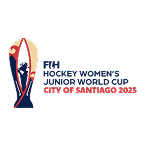
The FIH Targeted Assistance Programme (TAP) in West Africa is now two years into its existence and the results are there for all to see.
Real ambition to improve hockey in the region drove the stakeholders to set six desired outcomes – a tough ask of a four year programme, but a task that all the parties involved were prepared to work hard to achieve.
FIH, England Hockey, UK Sport, the African Hockey Federation and the Ghana Hockey Association came together to devise a plan to meet the outcomes in a real show of partner working.
Chief executive of England Hockey, Sally Munday, summed up her organisation’s commitment to the project when she spoke about the enthusiasm of the Ghana women’s team when they visited England and Great Britain’s headquarters at Bisham Abbey for a two-week training camp. “You can’t help but get swept up in the enthusiasm. If we can share knowledge and expertise to help develop hockey in West Africa, then that is the dream of this project.”
The six outcomes for the TAP programme were:
- to improve the standard of coaching and umpiring throughout Ghana and neighbouring countries
- for the Ghana women’s team to qualify for a World level tournament by 2022
- to increase opportunities for high quality, international hockey across the West African region
- to make available more equipment and resources for hockey delivery in the region
- a chance to attract sponsorship and commercial opportunities surrounding hockey in Ghana and West Africa
- to build at least one more artificial hockey pitch in Ghana.
Here is how some of those targets have been met over the last few months.
By June 2015, a team of FIH Coach Educators, led by Siegfried Aikman of the Netherlands and England’s Darren Cheeseman, had trained 21 Level One coaches and 18 Level Two coaches. The trainees hailed from Ghana, Sierra Leone, Senegal, Togo, Cote D’Ivoire, Burkina Faso and Nigeria. In the same time scale, 21 umpires were trained under the guidance of FIH Umpire Educator, Mark Jarvis.
At the EuroHockey Championships, held in London during the summer of 2015, 1,200 sticks were collected and sent to the TAP organisers. This goes a long way towards meeting the four-year target of 4,000 sticks. TAP West Africa is hopeful of achieving its target of 4,000 sticks, 4,000 balls and 20 goalkeeper kits by 2018. And with one of the biggest challenges – how to transport the kit to West Africa – answered by logistics company DHL’s offer to help with transport, that target seems less mountainous.
Of course, one of the most obvious measures of the success of the programme is how the teams perform. In October 2015, Ghana women finished second in the continental qualifier for the Rio Olympics, the African Hockey Championships.
Ghana will also be competing in the Hockey World League Round One, and if all plans come into place – will be hosting the event in September on a new artificial surface. England Hockey and FIH event staff will be working to help the local organisers to run the event to FIH standards.
Looking to the year ahead, the FIH Hockey Academy TAP Team of Cheesman, Aikman and Jarvis will be delivering Coach Education and Umpire Education courses, plus further elite training for the Ghana Women’s team and coaching clinics in Accra and Kumasi for youngsters. To support the French-speaking West African countries, Michel Kinnen from Belgium will deliver programmes in French.
“Many development projects across many sports will make a difference in the short term,” says Mike Joyce, FIH Sports Services Manager, who has responsibility for the TAP Programme. “We want to make this long term and sustainable. The expert help we are giving now means that the national associations will be able to continue the work in the future.”
The FIH Targeted Assistance Programme (TAP) is our global initiative to support our Continental Federations and National Associations in the development of long-term sustainable development projects or programmes.
TAP provides funding and/or support in kind to our National Associations via their Continental Federations for specific projects that are relevant to our ten-year strategy for hockey - the Hockey Revolution.
For more information on TAP, click here.

























